
27 November 2019
Are you talking about public ownership on the doorstep? Here are the key arguments you’ll need at your fingertips.
Public ownership makes sense and is very popular - so you'll probably find common ground with most reasonable people!
1) Privatisation has failed
Privatisation has failed, repeatedly, for nearly 40 years. In the 1980s, Margaret Thatcher introduced the extreme ideology of insisting that private companies do everything. From G4S letting us down at the Olympics to Serco lying about tagging prisoners, it’s been a disaster. We've been ripped off again and again, quality has gone down, accountability has gone out of the window.
- Rail fares have increased twice as fast as wages over the past 10 years. Passengers suffer with overcrowding, delays and cancellations while paying up to 5 times more than our European neighbours as a percentage of wages.
- Our water bills have risen by 40% in real terms while English water companies have paid shareholders £56 billion, leaked away 20-25% of water and polluted rivers and beaches with raw sewage. All the investment in water infrastructure since 1989 could have been covered with our bills.
- Just 10.2% of the UK’s energy comes from renewables. Our privatised energy networks have made it difficult for communities to connect new wind and solar projects to the grid.
- Bus trips outside of London have halved since privatisation, and fares have risen 71% from 2005-18. 3,000 bus routes have been cut since 2010.
- Royal Mail shareholders pocketed £800 million from 2013-17. Before privatisation, Royal Mail profits went back into the treasury to be reinvested in other services, rather than into shareholders’ pockets.
- Since BT was privatised, £54 billion has been wasted on shareholder dividends - enough to deliver full fibre broadband across the country twice over. Before privatisation, the UK was world leading in broadband development, but now just 8% of households have full-fibre connections.
- £15 billion of the NHS budget has gone to private company contracts in the past 5 years. Richard Branson sued the NHS when he didn’t get the contracts he was hoping for. In one hospital, people have been charged up to £8,500 for medical procedures.
2) Public ownership would save billions
We're wasting £13 billion on privatisation every year. That's £250 million EVERY SINGLE WEEK.
Privatisation costs more because it means wasting money on shareholder profits, fragmentation and the higher cost of borrowing in the private sector (government can borrow more cheaply).
- Public ownership of rail will save £1 billion a year - enough to buy 100 miles of new railway track.
- Public ownership of water will save £2.5 billion a year - investing this will reduce leakage levels by a third.
- Public ownership of energy networks will save £3.7 billion a year - enough to buy 222 new offshore wind turbines.
- Public ownership of buses will save £506 million a year - enough to buy 1,356 new electric buses.
- Public ownership of Royal Mail will save £171 million a year - enough to open 342 new Crown Post Offices with postbanks.
- Public ownership of broadband will save £500 million a year - enough to pay for full fibre broadband for 6 million households.
- Ending the internal market in the NHS will save £4.5 billion - enough to pay for 72,000 nurses and 20,000 doctors.
3) Public ownership is successful
There are hundreds of examples of successful public ownership - locally, nationally and around the world.
- Councils are already insourcing local public services from waste to social care. Over 3 out of 4 UK councils are planning to bring services back in house this year.
- Nine councils run their own buses across the UK – publicly owned companies like Reading Buses and Nottingham City Transport win awards every year.
- Councils are setting up municipal energy companies like Robin Hood Energy.
- The NHS was found to be the best healthcare system in the world in 2014 – scoring especially highly on quality and efficiency (despite being undermined by government cuts.)
- Publicly owned Scottish Water is the most trusted utility company in the UK.
- On our railway, the East Coast line fails in private hands and succeeds in public ownership - with 91% customer satisfaction.
- Other successful public owned organisations include Channel 4, Ordnance Survey, the Land Registry, the Met Office and the Royal Mint.
- The post office in France (La Poste) is publicly owned and has developed a range of innovative services including home visits for older people.
- The railway in Switzerland is publicly owned - and has been named the best train company in Europe
- Denmark has the highest proportion of wind power in the world - its equivalent of the National Grid is publicly owned
- Water is publicly owned in Paris - they've got lower bills and still and sparkling water fountains around the city #socialismwithasparkle!
- All over the world, hundreds of cities are taking water, energy and other public services into public hands!
4) Public ownership is popular
Most people – including Conservatives - think that public services should be run for the benefit of the whole community, not for a handful of shareholders. Polling clearly shows that public ownership is very popular.
- 84% want the NHS in public ownership
- 83% want water in public ownership
- 81% want schools in public ownership
- 77% want energy in public ownership
- 76% want the railways in public ownership
- 74% want social care in public ownership
- 70% of the public want parks in public ownership
- 65% want the Royal Mail in public ownership
- 62% want prisons in public ownership
Public ownership is popular partly because we know there's no real choice. The theory behind privatisation is that we can have markets in everything, giving us ‘consumer choice’. The reality is that’s just not true. For example, you can’t choose where your water comes from, or which train company to travel with.
5) Your strongest argument on the doorstep? The NHS!
Boris Johnson won’t protect it from a US trade deal.
The only way to make sure our NHS is not on the table in a trade deal with Trump is to end privatisation for good. As long as private companies are allowed to compete for contracts to provide NHS services, our healthcare service is open for business - with the US and everywhere else.
We're asking all election candidates to commit to ending all NHS privatisation once and for all - have yours signed the pledge?
TRICKY QUESTIONS? Find the answers at weownit.org.uk/FAQs



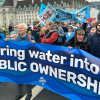






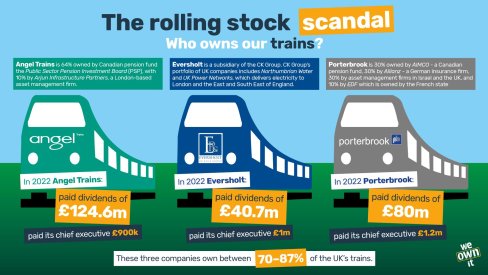
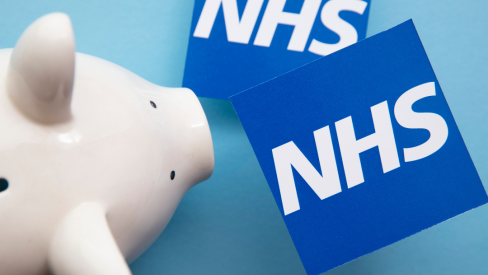

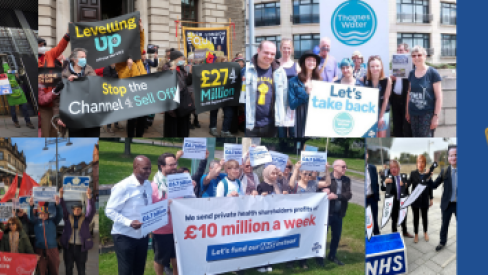
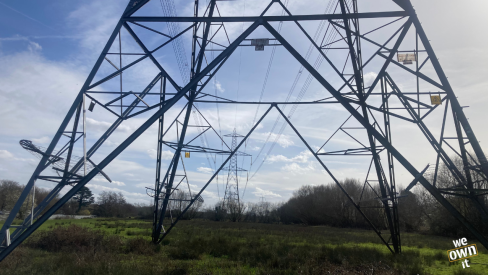

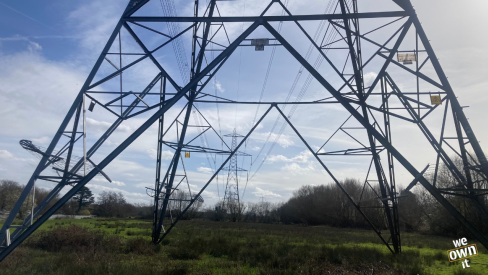
Comments
Paul Crummy replied on Permalink
Tory propaganda open your eyes people THEY only look after the interests of 5% of the population THEY are thy only people that benefit don't be fooled
David Wilton replied on Permalink
PRIVITISATION MAKES SENSE.
Martin replied on Permalink
Nadhim Zahawi my ‘local’ Tory MP (he doesn’t live in my town and contributes nothing apart from photo opportunities) refuses to pledge to keep the NHS off the table in US (Un Savoury) negotiations - the US hate the U.K., look at the history ffs.
Zahawi is minister of all bullshit as long as the party line is adhered to, he has no valid opinion of his own unless it’s throwing his toys out of his pram because the council knocked him back on his wish to ignore planning rules wanting to develop ‘his’ property. He is a typical self interested uncaring bullshitter with not a single bone of statesmanship in his pathetic fat rich body, much like his worthless fatuous lying leader. How does one know Boris is lying? Check if his mouth is open!
Anonymous replied on Permalink
Cancel my first comment, I MEANT TO SAY PUBLIC OWNERSHIP MAKES SENSE. "PARAMOUNT"
John Light replied on Permalink
Much of the profit from Privatised utilities and industries goes abroad, often to foreign governments enabling them to keep taxes lower for their citizens! That money is lost to tax payers, consumers and investment in the UK, inexorably impoverishing the country.
Baz replied on Permalink
That’s all well and good but he wants to tax me to death for using my car to pay for it!
Anthony Matthews replied on Permalink
I don't think any one's actually been taxed to death. Lots of people have died because some people haven't been taxed enough though.
Zak McKracken replied on Permalink
This post wins.
Christopher Hall replied on Permalink
I am totally supportive of "We Own It" and would just add that mutualisation and co-operatives should be factored into the concept of the workers taking control...
George Jeffreys replied on Permalink
Also add on successful co-op enterprises, Not state but not capitalist. Can be added to the mix. Please keep this idea alive.
Samantha Cook replied on Permalink
I work in social care at a day centre for people who have dementia...the local council is in talks to transfer the service to a private company all other adult social care has already gone and the service provided is at best poor I see it on a daily basis ...social care should be kept in house it is a service not a business
Samantha Cook replied on Permalink
I work in social care at a day centre for people who have dementia...the local council is in talks to transfer the service to a private company all other adult social care has already gone and the service provided is at best poor I see it on a daily basis ...social care should be kept in house it is a service not a business
Charles Day replied on Permalink
I cannot agree with you regarding nationalisation - certainly privatisation has not been as successful as it should have been and far more administrative control needs to be enforced by the Government. However, I am old enough to remember when so much was in the public sector and it was dreadful - and no, it will not be improved this time (if it happens) for the simple and obvious reason that human nature does not change. Only proper competition can maintain an efficient standard.
Cheryl Coyne replied on Permalink
Charles Day: "Competition" has ruined everything we care about. How much longer do we want to have austerity, while people like Branson line their already overfilled pockets?
Neil Wilkinson replied on Permalink
You support competition, the competition disappeared very quickly in the privatisations mentioned above. Shares quickly changed hands, very soon they were bought up by large organisations. Resulting in monopolies, in the case of buses, companies like Ariva are far bigger than any of the publicmy owned bus operations, we had before. As for Train Operating Company’s, Their shares have been bought up by European state owned railways. So where is the competition you are keen on? Gone, as well as the accountability we had with publicly owned utilities
Anthony Matthews replied on Permalink
I remember when so much was in the public sector too, Charles, and our recollections differ. Last year I had to use the trains to get to work and back. At least 30 percent of the time my train home was late and I was left walking the platform at night in the cold because the staff had gone home leaving the waiting room locked – along with the toilets. The seats provided under the platform's open shelter were made of sheet metal and were cold and uncomfortable. With only a weird-looking contact kiosk on the platform for emergencies I could only imagine how vulnerable a woman alone would have felt. With the amount of public money spent on our railways we deserve better than high rail fares, poor service and facilities. We should nationalise the railways and spend properly on them. The returns would be significant. 40 years of privatisations have, more often than not, meant higher prices and poorer services across the board. The Invisible Hand is just a ghost story after all.
Irene Wilde replied on Permalink
I worked in the Electricity industry before it was privatised. We offered a really good service and electricity per unit was cheap and affordable. Everyone knew who to contact if there was a fault, needed wiring services, needed to buy appliances or have them repaired. It really was a one stop shop.
Contra Friedman replied on Permalink
Charles Day; I’m old enough to remember when trains performed much better than they currently do (without the frequent disruptions and delays) while maintaining affordable ticket prices for passengers. Also, old enough (and informed enough) to realise that the reason why there were some service issues with utilities and train services prior to privatisation was because of the pernicious Tory strategy of starving public services of funding in order to build the case for privatisation (see academic research: The Great Train Robbery, Andrew Bowman et al, and The Privatised Water Industry in the UK: An ATM for Investors, Karol Yearwood). Aware enough to discern that it is simply not a mindless creed of “free market” competition or some other neoliberal mantra that frames the public sector in the UK as uncompetitive because I have lived in Europe (five years in Holland in the early 2000s) to realise that the publicly controlled train services there (Nederlandse Spoorwegen) provided a much better level of service compared with Britain’s privatised train services and at a much cheaper price too. Not to talk of the Swiss national train services. The point is, neoliberalism and all that “free market” (more like rigged market) theology has had its day fooling some of the people for some time in this country, but it will no longer fool all the people all of the time. The fantasy of so called “proper competition” is merely a utopia in the neoliberal rigged market framework; which should be obvious if you carefully assess the seemingly harmless corporate objective of “profit maximisation” (or in Gordon Gecko speak: “greed is good”), which implies that a corporation should do whatever it takes, on the margin, to increase the bottom line (and consequently shareholder value); and this includes eliminating competition using such mechanisms as mergers and acquisitions or downright bribery (or in neoliberal speak: political lobbying). I, as part of my professional work, have unfortunately participated in the export of the neoliberal fantasy of greater efficiency and fiscal responsibility from privatisation (mainly PPPs) to developing countries, and I have seen first-hand that it is not a sustainable long-run mechanism for delivering effective (read efficient and affordable) public services or infrastructure. In my view, democratic systems underpinned by well-functioning robust institutions, free from the corrupting influence of concentrated wealth, are the best channels for delivering public services at this stage of human development. Of course, free enterprise can still remain for non-public goods and services, but soon enough it will become common wisdom that the prime motivator for human endeavour is not, and has never been, profit.
Anne Schuman replied on Permalink
We should restore public ownership of our services, and if the managers are proud of their job
they will ensure it works well.
When the profit inducement is removed, the quality improves exponentially.
Landdie replied on Permalink
There was a reason The British Isles enjoyed a short warm moment after the second world wars end. It had nothing to do with privatisation or the Tory party and everything to do with the nationalised infrastructure and services put in place by Liberal and Labour policies.
Then came Margaret Thatcher in 1979 and the ending of the short warm moment began in earnest. Four decades of Toryism, make no mistake Blair was one to, have all but destroyed everything good our parents fought for after the end of the war and in its place we have what? Austerity and zero in the national coffers.
If Britain could build all those wonderful institutions after the end of the war whilst massively damaged and hugely in debt how is it the Torys can't keep it in place now despite continuously telling us the national economy and employment levels have never been better. The reason is they are self serving bigots and absolute rubbish at running countries.
You cannot run a decent country on a for profit basis! We need an end to corporate welfare if we are ever to return welfare to whom really belongs. All the people of Britain..!
Anonymous replied on Permalink
I used to work for British Rail in the 70's when Fleet St, as it was then and whose headlines used to scream "This service should be in private hands because it will be more efficient, the trains will run on time and the subsidies would no longer need be a drain on the public purse?" We all know that all of this is entirely fallacious-the latter now funds private investors (Shares dividends for doing nothing)and the trains run on time......????
Ros replied on Permalink
"Before privatisation, the UK was world leading in broadband development" BT was privatised in 1984. 15 years later, in 1998, 9% of UK households had (dial up) internet access. 9 years after that, in 2007, over half of households had broadband internet. In 2019, 35 years later, "just 8% of UK households have fibre broadband internet". Has the privatisation of BT really held up the progress of internet technology that much? The USA has 14.6% of households with fiber broadband.
John Courtneidge replied on Permalink
Of course, 'Careship', or better yet, 'Co-operative Careship' as in the plan for true socialism, Co-operative Socialism, is better than *any* form of 'Ownership'.
Charles Church replied on Permalink
Thatcher and Reagan plus others dreamed up the neo-liberal nonsense and called themselves conservatives. Like Blair, and his New Labour, it was not labour just Thatcherism in a pretty dress, which landed us,like she did in a war from which we will suffer far into the future. She called him her "greatest achievment" and we were all fooled. None of it was benign just supporting the middle class and the well off. The despised working class as in "Britannia Unchained" and Johnsons Nonsense, Father and son, have never had the politics explained to them nor what Brexit really means and now feel alienated from Labour, their one last hope, because Labour have gone about it in the wrong way and as in the 1930's (I was born in 1930) the working class were tempted by Moseley and fascism and we are back there. Boris is fascist and reformed his party, getting rid of the old fashioned conservatives. How do we reach and tell the working class they have been duped (no one likes to admit that!)when the right wing own nearly all the newspapers and the BBC and SKY are so horribly biased? Facebook has brought in censorship as I well know, although Twitter is still unmolested. I really fear for the future although I shall be dying quite soon now.
Add new comment